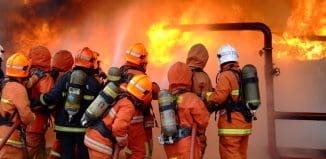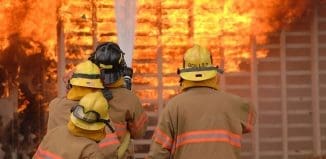Israeli Home Front Command: Ready for Anything
This post is also available in:  עברית (Hebrew)
עברית (Hebrew)
“When an army is ready for war it also has to be ready for all types of disasters, natural and man-made. In order to be prepared the army must cooperate with civilian authorities: Police, fire fighters, rescue services, government offices, local authorities and of course, the health system.”

That was part of the keynote address given by Maj. Gen. Eyal Eisenberg, IDF Home Front Commander, at the annual IPRED emergency preparedness conference, which focused mainly on medicine and health. Maj. Gen. Eisenberg added that the Home Front Command and the Medicine Corps are prepared for any scenario by regularly conducting drills for the various medical teams in hospitals and clinics, all according to an annual timetable. “We’re also ready to lend a hand during any disaster, as we’ve shown two months ago in the Philippines and in other disaster areas around the world over the years. Our motto is saving lives, without borders.”
Col. Avi Abergel added that a “humanitarian army” isn’t a contradiction in terms, as the IDF has proved over the years by helping casualties in disaster areas around the world, in addition to the unique aid given to Syrian civil war casualties.
IHLS – Israel Homeland Security
Dr. Boaz Lev, former Health Ministry General Director, presented the Israeli-developed model, based on constant preparedness for all threats, infrastructure security, command and control systems development, integration of knowledge and preparation of databases, in addition to international cooperation.
Brig. Gen. Yitzhak Kreiss, IDF Surgeon General, said that the Israeli Medicine Corps presents an emergency response model to the international community, which has been seen in action in Armenia, India, Kenya, Kosovo, the Philippines, Turkey, the Bulgarian city of Burgas and along the borders with Syria. “The State of Israel made a strategic decision, to extend humanitarian aid to all those who need it around the world. That’s why the IDF is constantly ready to send field hospitals to anywhere in the world. This requires devotion, quick decision-making and cooperation between Israeli military and civilian medical authorities. We always cooperate with local medical services in any disaster area. That’s how we operated in the Philippines, where our field hospital was established next to a local civilian one. That’s the right way to do it, that’s how we took care of over 2,000 sick patients and delivered 69 babies.”





























